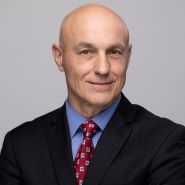Proper venue, a developing story
- August 21, 2017
- Article
Associated People
The U.S. patent venue statute states that a patent litigation may be filed in the judicial district where (1) the defendant resides, or (2) the defendant has committed acts of infringement and has a regular and established place of business. See 28 U.S.C. § 1400(b). In May, the U.S. Supreme Court held that a U.S. corporation “resides” where the defendant is incorporated. See TC Heartland LLC v. Kraft Food Grp. Brands LLC, 137 S. Ct. 1514 (2017). Initially, the decision was thought to close the door to most districts, including the Eastern District of Texas, because many patent litigations were filed under the theory that “resides” meant any district having personal jurisdiction over the defendant. But soon, the focus changed to the second part (2) of the statute: “a regular and established place of business”.
In June, Eastern District of Texas Judge Rodney Gilstrap set a relative low bar for “a regular and established place of business”—a single salesman operating out of his home, with no product inventory—and justified the holding with an amorphous four-factor test: (a) the defendant’s physical presence in the district, (b) the defendant’s representations regarding its presence in the district, (c) the benefits the defendant has received from the district, and (d) the defendant’s targeted interactions with the district. See Raytheon Co. v. Cray, Inc., No. 2:15-CV-01554-JRG (E.D. Tex. June 29, 2017). That decision is currently under review by the Court of Appeals for the Federal Circuit. The Gilstrap test quickly came under fire from certain congressmen, who are considering further legislation.
In the meantime, other district courts are tackling the issue, with most courts being relatively restrictive. A number of decisions in July and August found no regular and established place of business where there is no permanent, brick-and-mortar, physical presence—for business purposes—in the district. Of note, the Eastern District of Virginia did not find a regular and established place of business based on making accused products available online through Amazon.com, which could be accessed from within the district. Also, a Nevada judge held that a defendant attending a trade show in the district without any offices, employees, or land in the district, did not have a regular and established place of business. However, a single retail store (an Apple store) in the district was held enough in Delaware.
We will continue to monitor this developing story.
Recent Publications
Federal Circuit Holds Prosecution History Disclaimer Applicable to Design Patents
by Sana Tahir, Law Clerk and Andrew Ollis, Partner










 Counseling & Strategic Advice
Counseling & Strategic Advice IP Transactions
IP Transactions Litigation
Litigation PTAB Proceedings
PTAB Proceedings Technology Transfer
Technology Transfer Trademark & Designs
Trademark & Designs U.S. Patent Procurement (Application Drafting & Prosecution)
U.S. Patent Procurement (Application Drafting & Prosecution)








